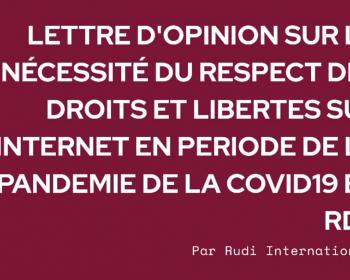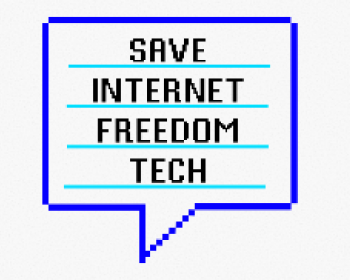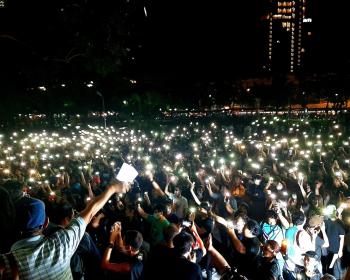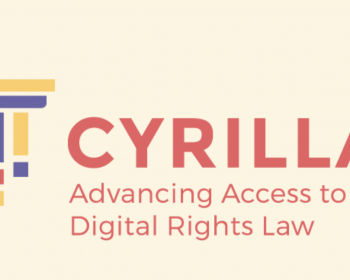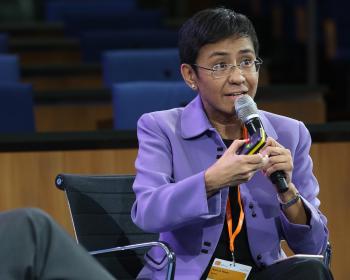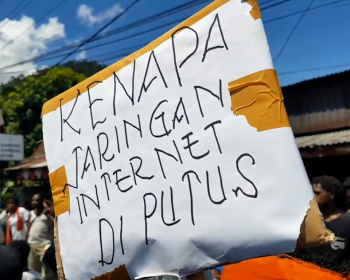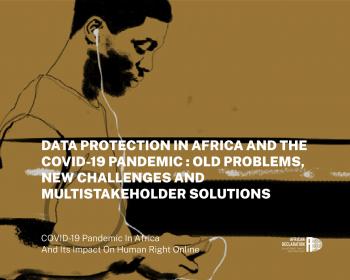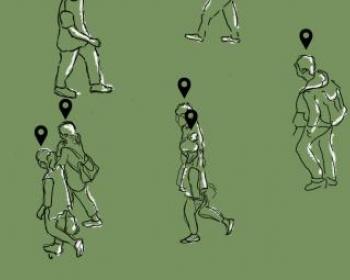Access to information
For decades, the internet has not reached all areas in Sudan proving the lack of real governmental effort to implement the principles of the African Declaration on Internet Rights and Freedoms.
Rudi International released an op-ed with the aim of drawing attention to the importance of access to the internet during the COVID-19 pandemic in the Democratic Republic of Congo (DRC) and to offer suggestions on how to ensure and enforce internet rights and freedoms.
APC joined over 400 other civil society organisations and thousands of individuals in this open letter calling on the US Congress to voice its support for the Open Technology Fund, an independent non-profit grantee of the United States Agency for Global Media in danger of being dismantled.
In early 2020, Thailand saw a wave of student protests challenging the tenure and government of the Thai prime minister, but the pandemic forced a suspension of protests. How has social media been used in response?
From 10 - 12 June, CYRILLA and APC hosted a Twitter campaign. The purpose of #DigitalLawsAsia was to explore the human rights impacts of digital regulation in South and Southeast Asia.
On 15 June, online news organisation Rappler’s CEO and executive editor Maria Ressa and former researcher-writer Reynaldo Santos Jr. were convicted of cyber libel charges, in just one of 11 court cases filed against Rappler, branded one of the staunchest critics of President Duterte.
Earlier this month, the Jakarta State Administrative Court declared as illegal the internet shutdowns in Papua and West Papua enforced by the Indonesian government in 2019.
Al Munasq, a dangerous application launched by Israel’s Coordination of Government Activities in the Occupied Palestinian Territory (COGAT) unit last year, violates Palestinians' privacy and can lead to other human rights violations.
Data protection in Africa can still be described to be in its nascent stage. Most African states do not have a data protection law. This paper by Tomiwa Ilori considers the status of data protection in Africa and the impact of public emergencies like the COVID-19 pandemic on data protection in Nigeria, Senegal, Uganda, Kenya, Morocco, Tunisia, South Africa and Mauritius.
The COVID-19 pandemic has resulted in a need for solutions to “flatten the curve”. This essay by Rumbidzai Matamba and Chenai Chair employs the use of the South African government’s contact tracing initiatives to assess whether the social contract theory can be employed as a tool to justify privacy violations for public health.

Association for Progressive Communications (APC) 2022
Unless otherwise stated, content on the APC website is licensed under Creative Commons Attribution 4.0 International (CC BY 4.0)




